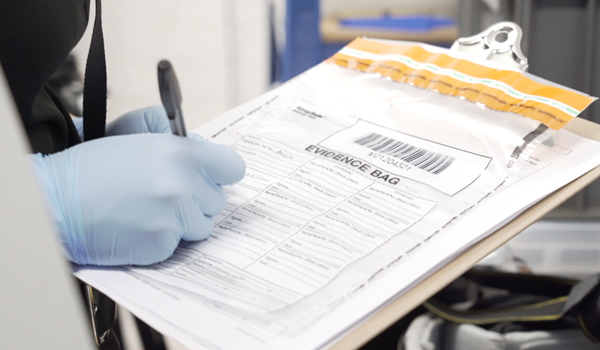Non-recent sex offences operation marks 20 years, 100 convictions and 500 years of prison sentences
A police operation which has used forensic breakthroughs to secure more 100 convictions for historical rape and serious sexual assaults is marking its 20th anniversary this month.
The West Yorkshire Police team, which investigates non-recent sexual offences, was set up in October 2004 and since then has secured more than 500 years of jail sentences for people convicted of the offences.
Codenamed Operation Recall, the team of officers and staff is part of the force’s Major Investigation Review Team (MIRT).
They work closely with forensic scientist partners, Eurofins Forensic Services, to take advantage of advancements in DNA technology to progress investigations into non-recent cases of rape and serious sexual assault.
The team predominantly relies on materials and paperwork retained by forensic scientists from their original examination of exhibits.
They are currently investigating around 80 offences, with some dating back as far as 1974.
“Forensic science is continually developing and allowing us to make advances in investigations where we were unable to do so before,” says Detective Sergeant Richard Ord of the MIRT.
“We consult with the scientists to see what can be done to establish a DNA profile from evidence that was sometimes captured decades ago.”
“In most of these cases, the forensic science was not advanced enough to get a DNA profile at the time the offence was committed or reported to us.”
The team then use the DNA profile to find a match on the national DNA database.
This contains millions of DNA profiles of offenders which have been collected by UK police over the years. The forensic review process has also linked cases not previously known to have been connected, and in turn, has identified serial offenders.
Det Sgt Ord added: “We’re very proud of what we’ve been able to achieve as part of Operation Recall.
“It was established back in 2004 so that we could take full advantage of scientific progress to seek justice for our victims.”
“As officers we never give up on seeking justice for victims, so the opportunity to further investigate cases like this has been a real benefit to us.
“Sometimes it’s a case of waiting for the science to catch up with us so that we can deliver justice for victims.”
“And I have no doubt there will be further scientific developments in the coming years that will help us to solve a crime that happened more recently.”
He said Operation Recall has been commended for its success and is seen as a blueprint for how to investigate non-recent serious sexual offences and has been adopted by other police forces across the country.
Notable Operation Recall cases include Raymond Manners, who in 2012 was convicted of the rape of two women in Leeds dating back to June and July 1979. In separate incidents he broke into the property where his victims were sleeping before attacking them. He was sentenced to ten years’ imprisonment. Following the work of Operation Recall, Manners was subsequently convicted of a further rape in 2017, which related to an incident in Leeds dating back to 1991. He was sentenced to 12 years’ imprisonment to run consecutively to his original sentence.
In October 2018, John Taylor, who was already serving a life sentence for the murder of teenager Leanne Tiernan in 2000, was convicted of 16 further offences, including rape and sexual assault. Five of those offences were connected to Taylor thanks to the work of Operation Recall. These offences dated back as far as the 1970s and 1980s. In 2018 Taylor was sentenced to serve a whole life sentence with no early release provision.


